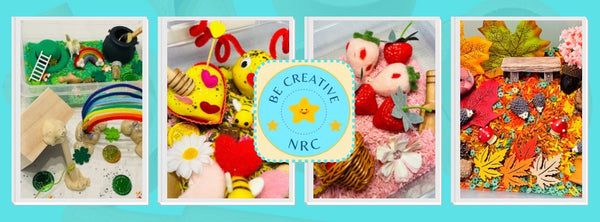In recent years, sensory play has gained significant attention for its myriad benefits in child development. Sensory bins, in particular, are a fantastic tool for engaging young minds in exploratory and educational activities. Research studies have shown that children exposed to various sensory training methods, including sensory bins, exhibit considerable improvement in their learning abilities and cognitive function. By letting children explore materials on their own, you are helping them develop and refine their fine motor, socio-emotional, creative, and linguistic skills. These children typically do better in school, have better social interactions, and are generally more prepared for the future. Here are five key benefits of sensory bin play:
1. Cognition and Problem Solving
Observation of cause and effect through sensory play builds early science skills. As children play, they are constantly processing how materials look, smell, feel, and sound. They experiment by manipulating the materials in different ways and then draw conclusions based on their own observations. In addition, shape and size recognition, counting, and sorting activities aid in the development of early math skills.
2. Language Development
Hands-on learning through sensory play allows you to help your child understand and define parts of language as well as introduce new vocabulary by teaching them various descriptive terms about how the materials feel and move. For example, the sand is dusty, gritty, dry, it flows or trickles. Children also dive into creative storytelling through sensory play as they immerse themselves in the small world provided.
3. Socio-Emotional Skills
During cooperative play in a sensory bin, children have the opportunity to practice social interaction. They work out how to share space, negotiate the use of materials, build relationships, and learn conflict resolution. Sensory play can also be a very calming activity for many children. It can help them focus and work through difficult emotions such as anxiety through the release of physical energy.
4. Fine Motor Skills
By scooping, grasping, pouring, molding, and squeezing, children are developing their dexterity and hand-eye coordination. These actions all support the development of large and small muscles necessary for dressing, writing, and numerous other practical life skills. Sensory bin activities improve focus by allowing your child to be in charge of how to use the materials. There is no reason to get frustrated because there is no right or wrong when it comes to sensory play.
5. Creativity and Imaginative Play
Sensory play provides open-ended opportunities where how your child uses the materials is more important than the end product. Children of all ages and stages of development can use their imaginations to create play scenarios for their people and animal figurines. When your child thinks creatively in order to engage in make-believe, it helps them build self-esteem.
Conclusion
Sensory bins are more than just a fun activity; they are a powerful tool for enhancing your child's development in multiple areas. From improving cognitive and problem-solving skills to fostering language development and socio-emotional growth, the benefits of sensory play are vast and varied. By incorporating sensory bins into your child's routine, you are setting the stage for a lifetime of learning and growth.
Explore our variety of sensory bins today and watch your child thrive!
For more information and to shop for sensory bins, visit nrcreations.net.
Thank you for reading! We hope this blog post has inspired you to incorporate sensory play into your child's routine. For more tips and information on child development, be sure to check out our other blog posts and follow us on social media.
#SensoryPlay #ChildDevelopment #FamilyFun #ImaginativePlay #ReduceAnxiety #ShopNow

